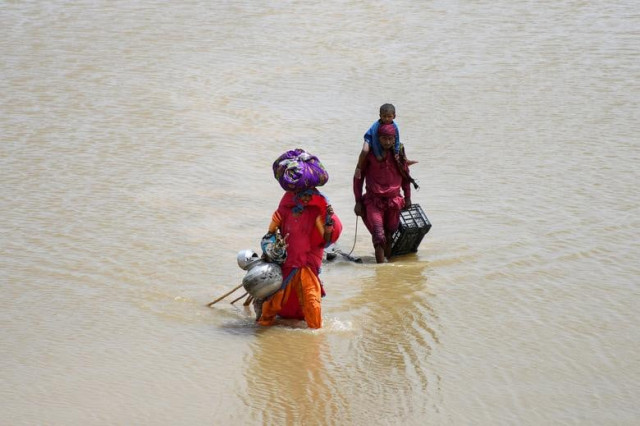‘Floods push more peasants into bonded labour’
Rights body says 190 bonded labourers, including 56 children and 63 women, freed by courts in Jan-Feb

Last year's unprecedented rains and floods have reinvigorated the financial bondage of farm labourers in the province amid weak enforcement of the Sindh Bonded Labour System Abolition Act, 2015.
While speaking at a press conference at Hyderabad press club on Saturday, Hari Welfare Association (HWA) President Akram Ali Khaskheli referred to a sudden spike in the number of litigations being pursued in the courts to free bonded labourers.
According to him, during the first two months of this year, the courts freed 190 bonded labourers, including 56 children and 63 women. The actual number of the bonded workers runs in tens of thousands, he claimed.
Khaskheli contended that the agonising debt bondage of peasants is rearing its head again because the government is failing to implement the law which was passed by the incumbent government in Sindh.
He added that under the law the government was supposed to establish and activate District Vigilance Committees (DVCs) in all districts of Sindh but so far only 14 DVCs have been set up.
"A dire need of the active DVCs was felt during the floods and in the post-flood situation to help prevent peasants from falling in the trap of debt bondage," said Khaskheli, lamenting that the committees did not play the desired part. He regretted that even most of the concerned government officers are oblivious to the law as well as to the Prevention of Persons in Trafficking Act (PoPA) 2018.
A lack of official support has exposed the peasants and workers to exploitation by landlords and the dealers of seeds, fertilisers and pesticides.
According to him, he has reports that a large number of peasants have started working under informal terms and conditions which are determined by landlords. "Such informal sharecropping arrangements [between landlords and peasants] result in the debt bondage," he added.
The HWA's chairman said that the prevailing situation has not only exposed peasants and their families to abject poverty and exploitative labour but they also suffer from malnutrition and health issues. He claimed that a farm worker received hardly Rs6,000 to Rs8,000 per month in wage against the government fixed minimum wage of Rs25,000.
Published in The Express Tribune, March 19th, 2023.



















COMMENTS
Comments are moderated and generally will be posted if they are on-topic and not abusive.
For more information, please see our Comments FAQ